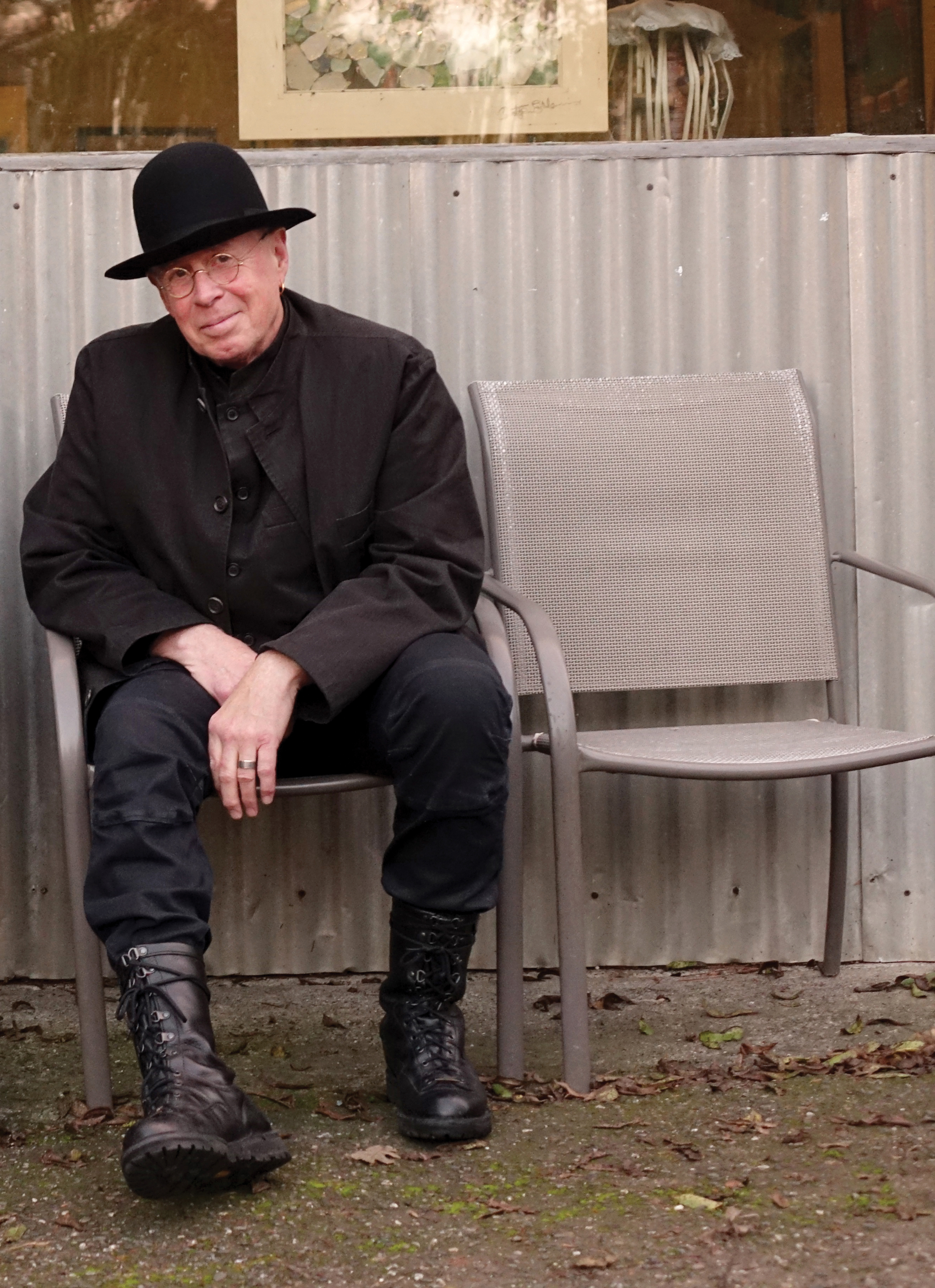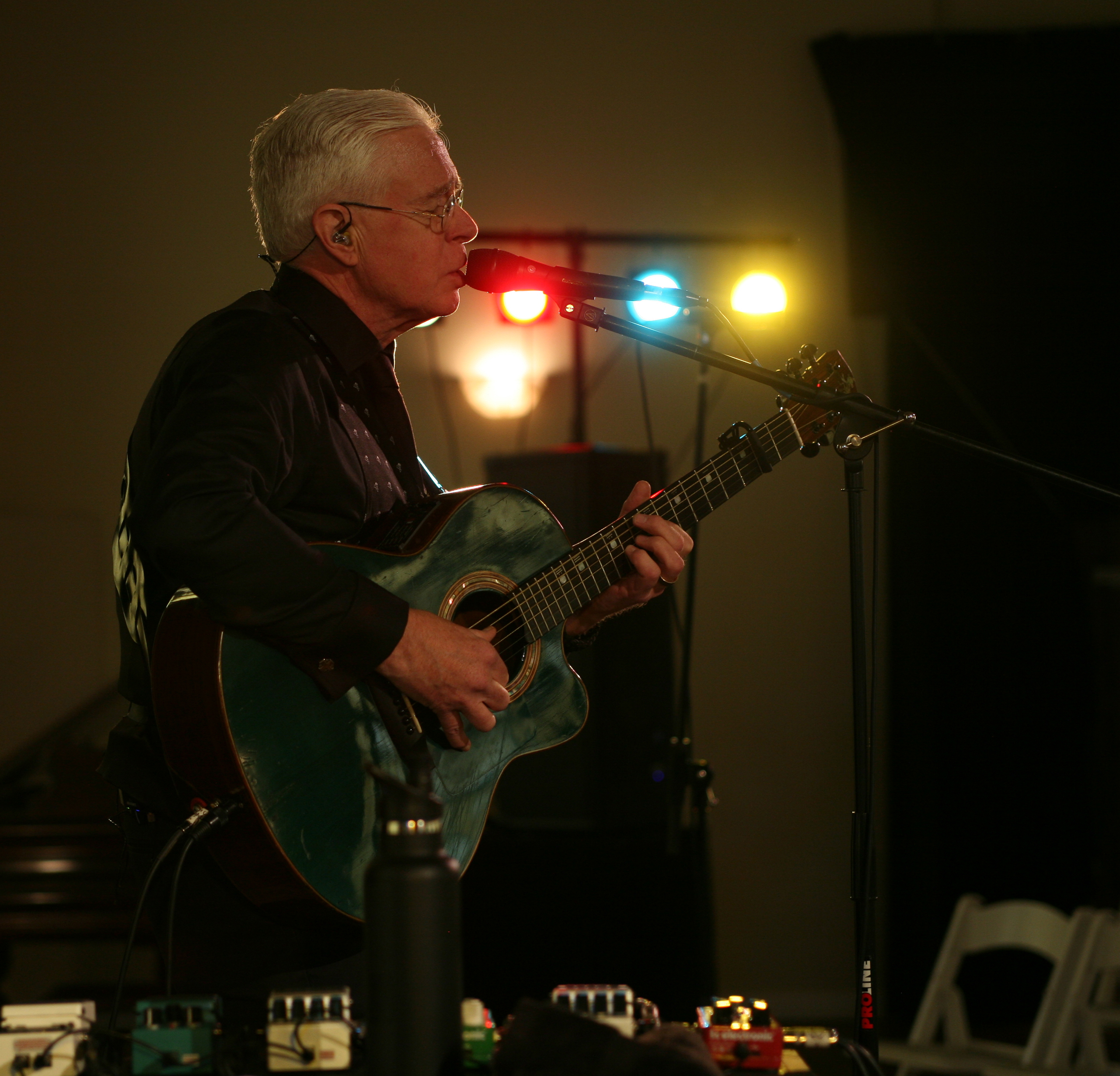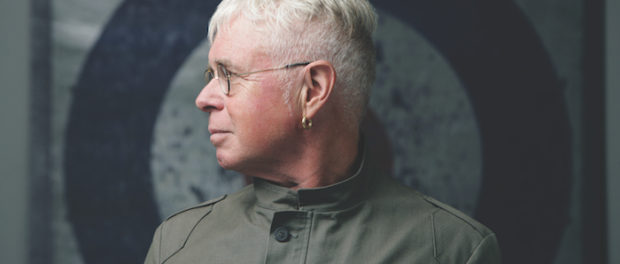Bruce Cockburn Talks About Life and Bone on Bone
Canadian singer-songwriter, guitarist and activist Bruce Cockburn has been described a “spiritual poet”, an “iconoclast” as well as the “Bob Dylan of Canada”.
With a career spanning almost half a century, Bruce Cockburn is an ever-evolving artist, who has undergone many stylistic shifts. He is a consistently meticulous guitar player and a skilled lyricist. His music blends folk, rock, pop and jazz, and his lyrics address human rights, environmental issues, politics and spirituality.
His 33rd album Bone on Bone is out on September 15th, 2017, which coincides with his induction into the Canadian Songwriter’s Hall Of Fame and the launch of his longest touring schedule in decades, with a stop in Montreal on September 19th at Club Soda.
Bruce Cockburn is a 13-time Juno Award winner and an Officer of the Order of Canada. He is also a Canadian Music Hall of Fame inductee and a recipient of the Governor General’s Performing Arts Award for Lifetime Artistic Achievement, Canada’s highest honour in the performing arts. In 2011, he welcomed the birth of his daughter and in 2014, he released his critically-acclaimed memoir Rumours of Glory.
I spoke to Bruce about his new album, osteoarthritis, Jesus, the search for God, the state of the world we’re leaving to our children and his upcoming tour.

Annie Webb (AW): Your new album flowed out of an invitation to contribute a song to a documentary film about the late Canadian poet Al Purdy. Why did this set you off on the writing of your album and how much of an influence is Al Purdy in your lyrics?
Bruce Cockburn (BC): He’s a considerable influence on the lyrics of the song called “3 Al Purdy’s”, which includes the recitation of pieces of his poetry. Otherwise not.
That song was the first to be written. It came after an extended period where I hadn’t written anything at all – at least no songs. I wrote a book, which is a whole different kind of thing. That enterprise took up all the creative juice that would have gone into song.
When the book was published and I didn’t have to think about that anymore, I’m standing around wondering if I’m going to write any more songs now because it’s been four years since I’d written anything. When I was in the midst of this period of uncertainty, the invitation came along to write a song for that film. I said “yes”, because I felt like if it works, it would get the process going again and put me back on the songwriting track. I was very glad to be able to get that song and have it work, and I’m very grateful for the ones that came along afterward.
AW: What are your main inspirations for your new album, as well as the overarching themes?
BC: The inspiration for all my songs is life as I experience it. There’s no particular theme. I’ve never been the kind of writer who sits down and plans out what I’m going to write songs about or how to put together an album around a particular idea.
The album acquires a type of thematic content because the songs come from a particular period in my life. There’s a certain kind of unity and feel – to some extent lyrical content – that reflects whatever I was going through when songs were written. Out of that stew pot of experience, there’s a fairly noticeable spiritual bent, which is not new and not unusual. But there have been times when it’s been less an obvious part of songwriting as it’s been on this album. There’s that and there’s how it feels to be in the world the way it is right now.
AW: In the film Pacing the Cage you’re asked, “Are you more of an optimist or a pessimist?” and you rapidly reply, “I think we’re fucked”. I know you’re a social and environmental activist and have a 5-year-old daughter. I have a young child as well and I’m worried about what the world will look like when she has her own kids. Do you feel the same way about your young daughter’s future, perhaps more than with your first daughter (who is now 40 years old)?
BC: Yeah, I think so. I’m not sure if it’s more because 30-40 years ago there was a lot to worry about as well. It feels like it’s more precarious now than it was 40 years ago – the state of the world, that is, and the state of the world as something that I’m handing on to my child. I found that when my first daughter was born, the sense of responsibility became very strong, but that I’m somehow responsible for at least to whatever degree I’m complicit in perpetuating this stuff we see around us.
When you’re going hand this world onto your kid, you better make it the best one you can. At the same time, you want to prepare your child for what they’ll have to deal with. There’s a balance that has to be found between keeping things in hand and preparing for the inevitable – or what might be the inevitable.
I feel like the world is actually coming apart. I don’t have enough confidence in that opinion to sell it as a prophetic message, but that’s how I feel. I look around and it looks like entropy to me. One of the songs, “Cafe Society”, mentions that: the word “entropy”. If you want to look at it from a religious point of view, it looks satanic. It looks like the forces of chaos are really flexing their muscles. The effects of that are far more noticeable than any antidote that might be offered in spiritual circles.
Flapping lips of flatulence bellow “vote for ME”
Everything is spinning in the looming entropy
– Cafe Society
I believe there is that light. Even if it’s a faint hope, there’s the hope that enough people will be motivated to act out of a sense of our interrelatedness to each other and the planetary processes that keep us alive. If enough people get that and start living from a place of understanding that, then it will have an effect.
AW: The title of your album and the title track is Bone on Bone. Bone on bone usually refers to osteoarthritis, when you have no cartilage left between joints. What is the significance of “bone on bone”?
BC: You’re right. That’s exactly what Bone on Bone refers to. I have hands like that. My finger joints have no cartilage left and some other spots like that too. It’s interesting because most young people don’t think about that. The phrase “bone on bone” doesn’t mean anything to them.
Micheal Wrycraft did the album artwork. In one of our first phone conversations, he asked me what the title of the album was going to be and I told him: Bone on Bone. And there was a pause, and he said, “Ooooh, sexy.” I said, “No, Michael, no. So not sexy.” But that’s what it is, and it seemed like a good title for a guitar piece using those fingers.
AW: Does the osteoarthritis in your hands affect your guitar playing these days?
BC: Yes, it does. I don’t think it affects it in the way that anybody’s able to hear yet. Eventually, it will. I hope I don’t have the presence of mind to quit when that comes around. But at this point, I’m getting away with it.
AW: There is religious and spiritual content to many of the songs on the album like “Jesus Train”. You’re on the “Jesus Train”: who is Jesus and what does he represent?
BC: If you asked me this in the 70s, I would have given you an answer that was compatible with church teaching. That he was the incarnation of the divine on earth, that he lived how he lived and died how he died, etc. etc., and returned from the dead. Over time, that mental picture weakened, and I was not convinced of the reality of that – but not of what he stands for.
Lots has been written on these kinds of questions. In a certain way, the Jesus story echoes older stories from other cultures in the area, from ancient Egypt for example – these kinds of messianic figures that appear in various cultures and at various points in history. I have trouble with the exclusivity and the historical facts of whether or not there was Jesus.
I never lost interest in having a relationship with God, but what that relationship is supposed to consist of has come under question. But that search has led around. After decades of not being a church-going guy and for a long time not even thinking of myself as Christian, here I come back around again and now I do go to church. I’m sure not quite sure if I’m a Christian or not, but I’m thinking a lot about that.
Who is Jesus? He’s a representation of the divine. Whether he’s the only one or the best one is up for discussion. Part of my picture of Jesus is kind of a Jungian archetype, a collective animus. I don’t know if that’s right either. This is all subject to revision and drastic change with whatever next step is in front me that I haven’t taken yet.

AW: Where did the song “Jesus Train” come from? Is it a metaphor for the spiritual path?
BC: The song “Jesus Train” just popped out of me in church. It popped out having a dream in which there was a train that was definitely a spiritual presence: a powerful, armored locomotive. Looking back at the dream, it just seemed like that was the Jesus Train. It then ended up being a song.
There’s a lot of power in that train. For me, the image is not one of blissful meditation or feeling in tune with the universe. This is: “get on this train and charge through whatever landscape you have to charge through to get where you’re going.” Because it’s a train, you don’t have to fight your way through yourself. You’re on a vehicle that is going to take you there, no matter what.
Standing on the platform
Awed by the power
I feel the fire of love
Feel the hand upon my shoulder saying “brother climb aboard”
I’m on the Jesus train
– Jesus Train
AW: Over your almost 50 year career, what’s changed the most and how have you evolved as an artist?
BC: The biggest change I notice is in my body. I’d like to think I’m a better artist and I’m deeper into what I do. I have a keener sense of what makes a good song than when I started. Certainly in the beginning, my sense of what a song was, was really a product of all the songs I’d listened to rather than the ones I’d written.
At this point, when I’m writing a song I can be critical of what I’m writing at the same time as I can be excited about it. I think in the beginning there was only the excitement and not the criticism and not the ability to stand back and say: “Is this really going to work? Is anybody going to understand this?” I don’t want to be ruled by my anticipation of people’s response to the song because that’s not how you make art. But, at the same time, the album is out there for people to hear so you want to make it to some extent accessible.

AW: This is your longest tour in decades. How are you feeling about getting back on the road?
BC: I’m very excited about it. This tour is paced in a different way than what used to be normal because of my daughter primarily – because I have a family I want to maintain a relationship with. I don’t want to go out for six weeks at a time and come back for two, and then go out for another six, which is the way we used to do things when we had a new album.
But I haven’t stopped performing. This tour will be done in 3-week chunks with more time in between, so I get to have a family life at the same time as I get to do the touring. I’m very excited to be getting back on the road, especially with a band because almost all the work I’ve been doing for the last number years have been solo. It’s going to fun to have a real extra oomph on stage.
Bruce Cockburn performs at Club Soda on September 19th in Montreal. Doors open at 7 PM, show at 8 PM. Tickets: $53.25 to $55.25. See tour dates across North America here.
The author, Annie Webb, writes the blog spacedoutscientist.com






